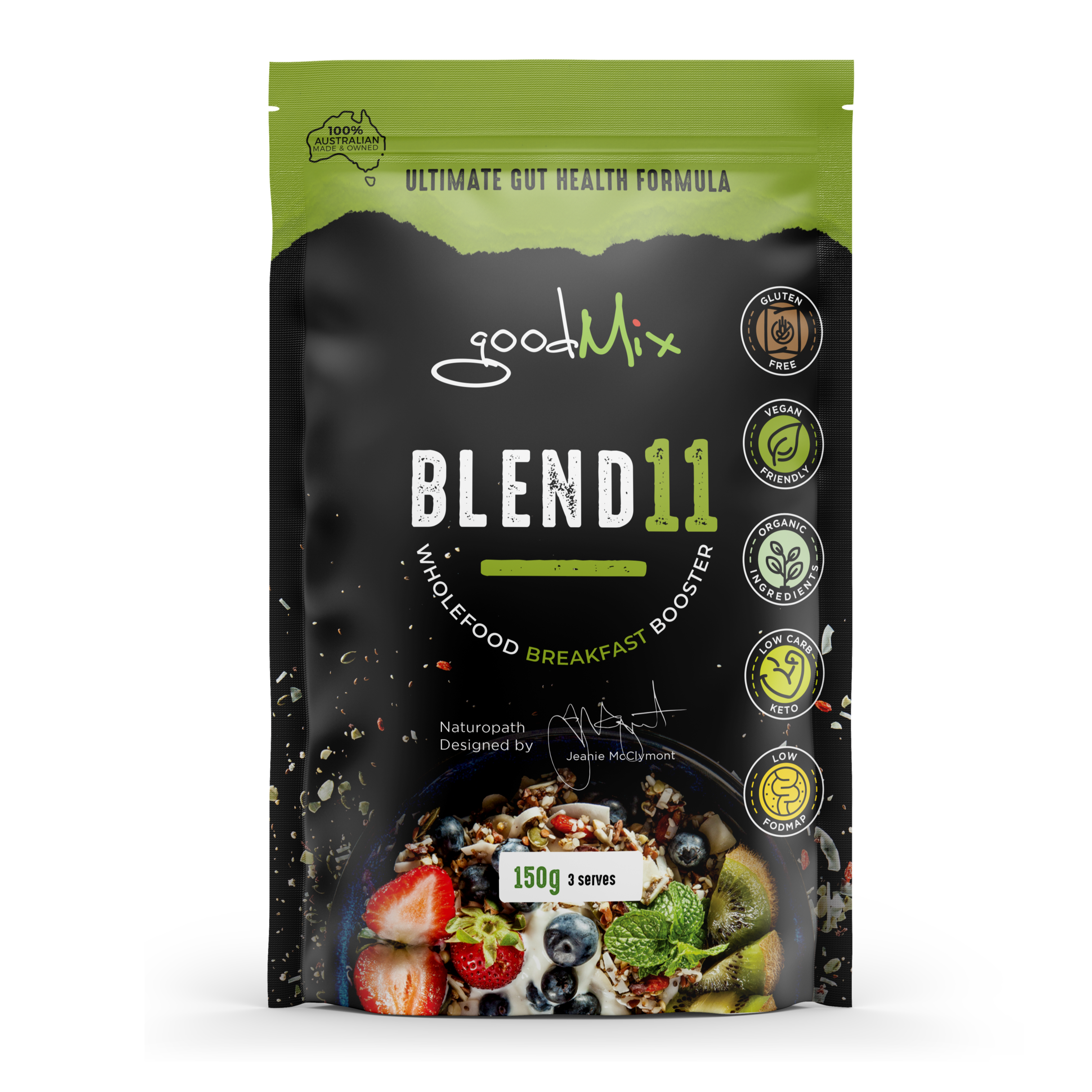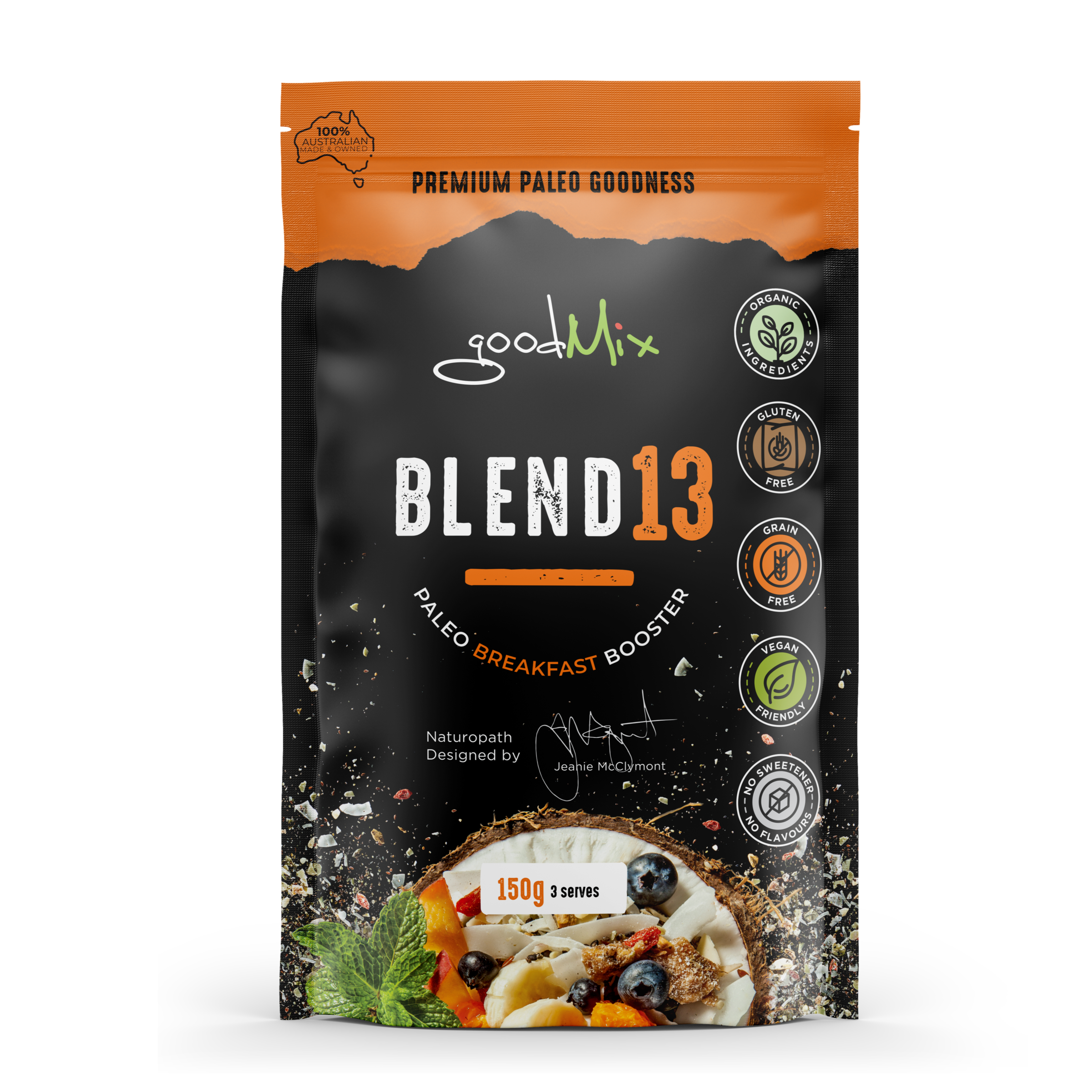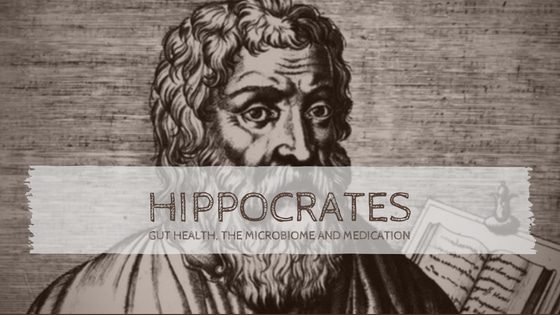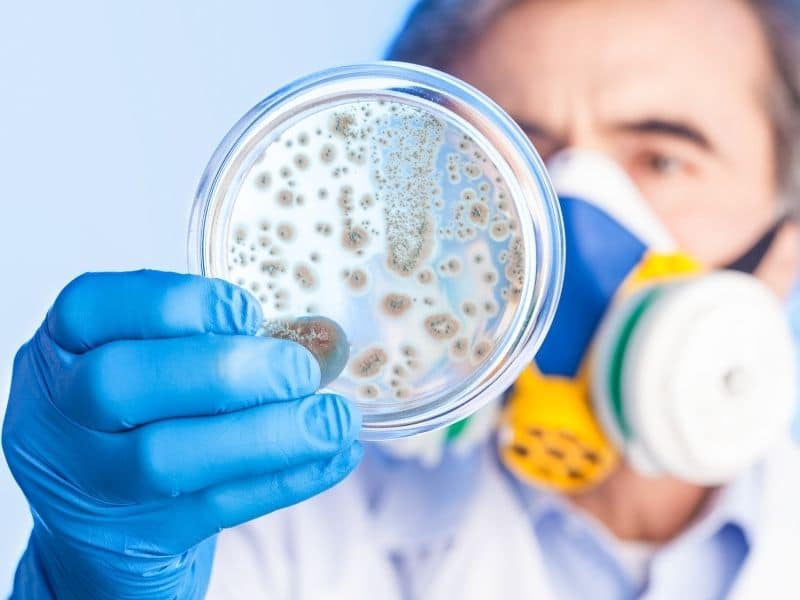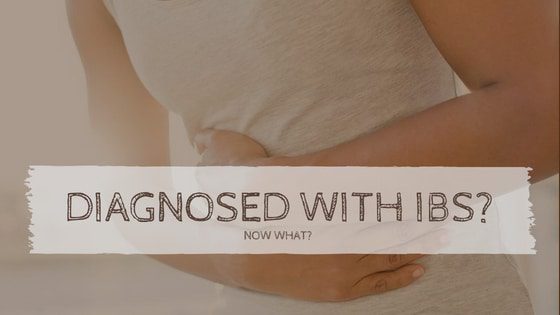
You’ve been diagnosed with IBS, what now?
A different kind of diagnosis:
First things first - realise that IBS is not really a diagnosis in the true sense of the word “the art or act of identifying a disease from its signs and symptoms” (definition from Merriam Webster). It’s actually a ‘diagnosis of exclusion’, meaning you’re told you have ‘IBS’ when there’s nothing else making any sense from your case history, symptoms & all the testing you’ve had done. It’s not bowel cancer, not coeliac disease, not diverticulitis, not inflammatory bowel disease, not a food intolerance…hmmm - you must have ‘Irritable Bowel Syndrome ‘. I guess it’s much more comforting hearing that from your Dr / specialist than ‘we have no idea what is making you feel so unwell’ (which is also usually true).
“Irritable bowel syndrome (IBS) is a functional gastrointestinal (GI) disorder characterized by abdominal pain and altered bowel habits in the absence of a specific and unique organic pathology, although microscopic inflammation has been documented in some patients”. (Medscape) Keywords here are ‘functional gastrointestinal disorder’ & ‘in the absence of a specific and unique organic pathology’. This means that the gut is not functioning normally, but there appears to be nothing wrong with it…no disease process going on…nothing that shows up on the tests currently available anyway.
A new definition for functional gut disorders:
“Functional GI disorders are disorders of gut-brain interaction. It is a group of disorders classified by GI symptoms related to any combination of the following: motility disturbance, visceral hypersensitivity, altered mucosal and immune function, altered gut microbiota, and altered central nervous system processing” I’ll explain briefly what these all mean below:- motility disturbance = how the bowel contracts & causes movement of food & waste through the GIT isn’t normal.
- visceral hypersensitivity = gut distension / pain / discomfort is felt more strongly & acutely.
- altered mucosal & immune function = your gut immune axis is a bit wonky. Your gut lining & gut bugs that live there aren’t working together optimally.
- altered gut microbiota = your gut microbial balance is out. The ‘ecosystem’ inside you has been disturbed or just isn’t harmonious.
- altered central nervous system processing = your brain is processing signals from the gut differently to normal.
EVEN THOUGH AN IBS DIAGNOSIS IS NOT REALLY A TRUE DIAGNOSIS - IT'S IMPORTANT. IF YOU'RE SUFFERING FROM GUT SYMPTOMS & THINK IT MAY BE IBS, GET YOURSELF CHECKED OUT BY A PRACTITIONER ASAP. IT IS REALLY IMPORTANT TO EXCLUDE SOME OTHER CONDITIONS THAT MAY HAVE SIMILAR SYMPTOMS, BUT MUCH MORE SEVERE CONSEQUENCES IF LEFT UNDIAGNOSED.
(Things like coeliac disease, food intolerances, inflammatory bowel disease, or even cancer can present with IBS-like symptoms). Get your badly-behaved gut checked!
IBS Sub-Types:
Realise that your IBS is not the same as the IBS your neighbour / friend / colleague / mum / aunty may be experiencing. Remember, just because your gut trouble has been given the same name as theirs, it doesn’t mean you have the same stuff happening or the same cause, or the same triggers. There are many recognised IBS sub-types: these just narrow it down a little, but still don’t mean that treatment or triggers will be the same.- IBS-C (constipation is the predominant symptom)
- IBS-D (diarrhoea predominant)
- IBS-M or A (mixed or alternating. This is the best of both worlds, with both diarrhoea & constipation experienced often).
- Post-Infectious IBS (usually begins after a bout of gastro, food poisoning or traveller’s diarrhoea, but not necessarily so soon after that you'll connect the dots). This one is more of a cause than a sub-type, as post-infectious IBS can morph into any of the above types, though more commonly IBS-D or M.
Warning Signs - Don’t Ignore These:
If you have tummy symptoms that you think may be IBS, but also experience any of the following - you need to get checked out ASAP!- Fever
- Persistent ongoing diarrhoea
- Unexplained or significant weight loss
- Blood in stools or dark coloured / black looking stools
- Iron deficiency anaemia
- Nausea & / or vomiting
- Abdominal pain that isn’t relieved completely by having a bowel motion
- Initial onset of symptoms occurring after age 50
So - now that you have your ‘diagnosis’, (or whatever it is)…what to do?
In most cases, upon ‘diagnosis’ with IBS you will have been offered various medications - something to block you up when you have diarrhoea, laxatives to help you go when constipated, some type of fibre supplement, some probiotics & maybe some antispasmodics to help control bowel contractions / cramping.The Low FODMAP Diet:
If you’re lucky, your GP / gastroenterologist has referred you to a dietician, nutritionist or naturopath who can help you try & figure out food triggers using a Low FODMAP diet (which limits certain rapidly fermentable carbohydrates known to cause IBS symptoms). My advice would be to shove the medications to the back of the cupboard, to be used in times of great need, but try your hardest to understand & follow the Low FODMAP diet & get an understanding of how FODMAPs affect your gut. While it won’t help everybody, for many it can be an absolute game-changer. But don’t go it alone, get help - FODMAPs can be super-confusing with an already confusing gut! The diet, when used properly, can help up to 75% of people diagnosed with IBS to manage their symptoms & feel more in control very quickly, so this is the first step to take. At least give it a go to find out if it will be useful for you - one potentially great tool in your IBS management toolkit. Note - a Low FODMAP diet is not meant to be a long-term diet, nor is it recommended for those without IBS. It is a tool to manage gastrointestinal symptoms, & great for general gut awareness, but is not recommended as a healthy life-long diet choice as many very healthy (& prebiotic) foods are excluded.Some More Natural Tools for IBS Management:
- hypnotherapy (proven to be useful in IBS management), check out the Monash Uni research on this
- meditation (proven to be effective for stress management, which is critical with IBS)
- other forms of stress management. I cannot stress enough how strongly stress will impact your IBS. Stress can cause everything to grind to a halt - when you're fighting or fleeing, you aren't eating / digesting. It will interfere with the migrating motor complex & also stomach acid production (which can lead to constipation, SIBO & all round poor digestion). Do ‘whatever floats your boat’ & helps you sail through life more happily - make time for it! Exercise, funny movies, massage, yoga, deep breathing, art, music…find your pressure release valve & hit it really regularly)!
- sleep, get enough. When we’re stressed out & not sleeping properly, our gut microbial balance changes (not in a good way), & that can make sleeping well even harder. It really is a cycle - bad gut, stress, worse gut, worse stress….until the nervous system & gut are completely dysfunctional.
- herbal relief (slippery elm, turmeric, aloe vera, herbal antimicrobials, bitter liver herbs, pomegranate, ginger, peppermint, berberine & polyphenol-rich herbs…get professional guidance from a naturopath, functional GP or herbalist for best results. Many plant extracts have been proven to help with IBS, or have been used for hundreds or even thousands of years to support healthy digestion).
- leave spaces between eating (give your migrating motor complex a chance to ‘clean up’)
- probiotics & fermented foods (these can be hit & miss, so it's best to get help from a practitioner who knows their bifido from their bacillus!) Some supplemental strains may aggravate some IBS people, e.g. SIBO (small intestinal bacterial overgrowth) people usually don’t tolerate the common & usually beneficial Lactobacillus strains well. In general, I think it’s best to try to get probiotics from foods, but sometimes capsules or powder are just more convenient.
- prebiotics (get help again, taking prebiotics can significantly alter your gut microbial balance, so you need to work with someone who can choose what is most appropriate for your system. Once again - prebiotic foods are generally better than supplements as they contain more diverse types of fibre & because mother nature made them, not some factory).
- exercise (moderation is key, being sedentary means poor gut function & microbial diversity, but overdoing exercise can hurt your gut).
- intermittent fasting (this can help by giving the gut a longer rest period in between meals & also can cause changes to the gut microbial population).
- fat / fibre / carbs / protein (experiment with what fuels your body best. Some feel better on a high-fat diet, some seem to function better with more carbs…see what works best for you). Fibre is crucial to good gut function as it provides food to support your beneficial gut bugs - just increase gradually to avoid gas & bloating
- ACV / lemon water (many people swear by these, taken first thing in the morning to ‘wake up’ & prime the digestive system for action).
- magnesium (helps many with IBS-C, plus it’s great for helping you relax if you’re deficient - which is extremely common. Constipated stress-heads LOVE magnesium).
- charcoal (handy to carry capsules in your handbag to swallow if you’re prone to gas & bloating).
- coffee (be careful with caffeine - it is a bowel stimulant. Everyone responds differently but just be aware of it. Some use it as a morning stimulant to help them ‘go’, others find it gives them the runs & need to avoid entirely).
- carbonated beverages (will aggravate bloating, just be aware).
- alcohol (some types may be ok in moderation but it depends - listen to your body).
- self-massage (great to help unblock trapped gas pockets or help move things along, add some peppermint oil into a carrier oil or moisturiser).
- get enough sleep (if you’re not sleeping well, your gut microbial balance won’t be optimal & neither will your ability to handle stress).
- gluten & dairy (2 really common triggers - aside from FODMAP’s, although there is overlap, worth trialling a GF DF period of a few weeks-months to see how you feel).
- sugar (makes you fat, moody, pimply, rots your teeth…& disrupts your gut microbial health. IBS is just one more great reason to minimise it).
- avoid antibiotics where you can (wiping out your gut ecosystem & hoping something that functions well grows back is a huge gamble that quite often ends in a long-term gut issue). Sometimes antibiotics can be useful though, to 'clean the slate' so you can start from scratch again - eating well & making an effort to cultivate & nurture a better ecosystem.
- medication review
- other medications can list IBS-like symptoms as a ’side effect’ (ask your pharmacist for detailed digestive info on your drugs).
- look into an FMT (faecal microbe transplant). Although not commonly recommended for IBS, definitely worth getting an expert opinion if nothing else is helping you. Be aware that there are potential risks involved, but also massive potential for making much needed gut microbial changes. This treatment would need to be supported with many of the above tips for best results (otherwise, you'll likely end up back in the same place again after a while).

